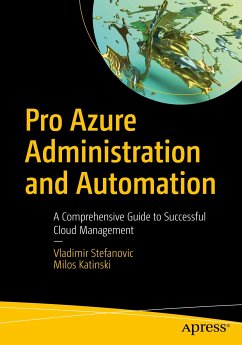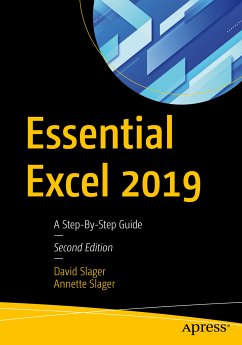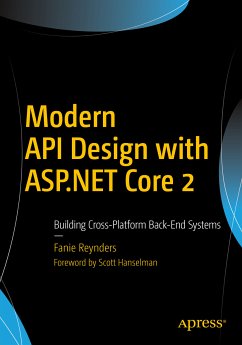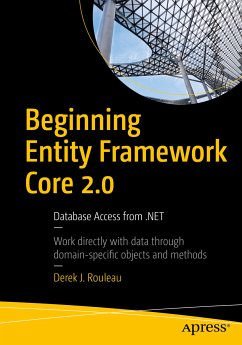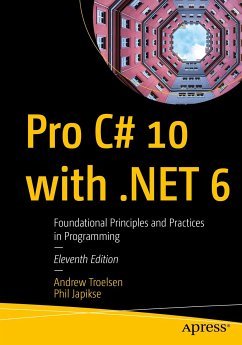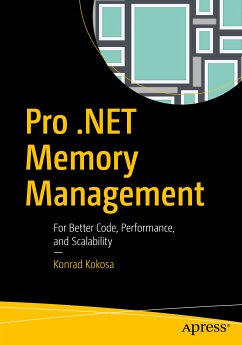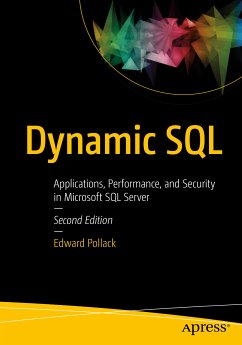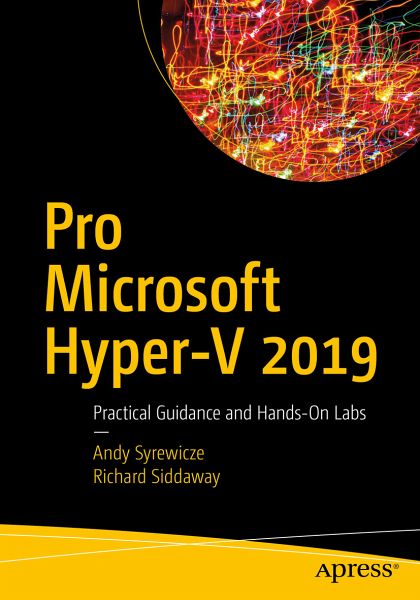
Pro Microsoft Hyper-V 2019 (eBook, PDF)
Practical Guidance and Hands-On Labs
Versandkostenfrei!
Sofort per Download lieferbar
60,95 €
inkl. MwSt.
Weitere Ausgaben:

PAYBACK Punkte
30 °P sammeln!
Successfully create and manage your Hyper-V environment without any of the marketing fluff. This book's lab-driven, hands-on approach will get you up and running as quickly and efficiently as possible. Virtualization is the cornerstone of today's data center. As a modern-day IT pro, you are required to manage environments that are in a regular state of flux and increasing in both size and complexity. To keep up, you need practical information in a format that is succinct, yet comprehensive and highly applicable.Pro Hyper-V 2019 breaks down critical and time-saving topics into a series of easy-...
Successfully create and manage your Hyper-V environment without any of the marketing fluff. This book's lab-driven, hands-on approach will get you up and running as quickly and efficiently as possible.
Virtualization is the cornerstone of today's data center. As a modern-day IT pro, you are required to manage environments that are in a regular state of flux and increasing in both size and complexity. To keep up, you need practical information in a format that is succinct, yet comprehensive and highly applicable.
Pro Hyper-V 2019 breaks down critical and time-saving topics into a series of easy-to-digest chapters, showing you how to perform Hyper-V management tasks using both GUI and PowerShell-based tools. Building on your existing knowledge of Windows Server management, Active Directory, networking, and storage, experts and Microsoft MVPs Syrewicze and Siddaway begin with a foundation of why computing workloads are virtualized. This is followedby chapters covering the range of management tasks associated with virtualized environments, including: managing hosts and guest machines; networking, storage, and high availability (host and guest); disaster recovery and virtual machine migration; and monitoring.
What You'll Learn
Who This Book Is For
IT administrators tasked with implementing Hyper-V environments or migrating from VMware. IT pros joining a team that is responsible for managing Hyper-V and "lone administrators" covering the gamut in smaller organizations will also find this book indispensable.
Pro Hyper-V 2019 breaks down critical and time-saving topics into a series of easy-to-digest chapters, showing you how to perform Hyper-V management tasks using both GUI and PowerShell-based tools. Building on your existing knowledge of Windows Server management, Active Directory, networking, and storage, experts and Microsoft MVPs Syrewicze and Siddaway begin with a foundation of why computing workloads are virtualized. This is followedby chapters covering the range of management tasks associated with virtualized environments, including: managing hosts and guest machines; networking, storage, and high availability (host and guest); disaster recovery and virtual machine migration; and monitoring.
What You'll Learn
- Apply practical information to administer your Hyper-V environments
- Understand multiple administration styles (GUI, command line, and automation)
- Written by IT pros for IT pros - just the information you really need without the padding
- Administer and use containers
- Utilize hands-on labs to learn about storage, networking, and high availability
Who This Book Is For
IT administrators tasked with implementing Hyper-V environments or migrating from VMware. IT pros joining a team that is responsible for managing Hyper-V and "lone administrators" covering the gamut in smaller organizations will also find this book indispensable.
Dieser Download kann aus rechtlichen Gründen nur mit Rechnungsadresse in A, B, BG, CY, CZ, D, DK, EW, E, FIN, F, GR, HR, H, IRL, I, LT, L, LR, M, NL, PL, P, R, S, SLO, SK ausgeliefert werden.



